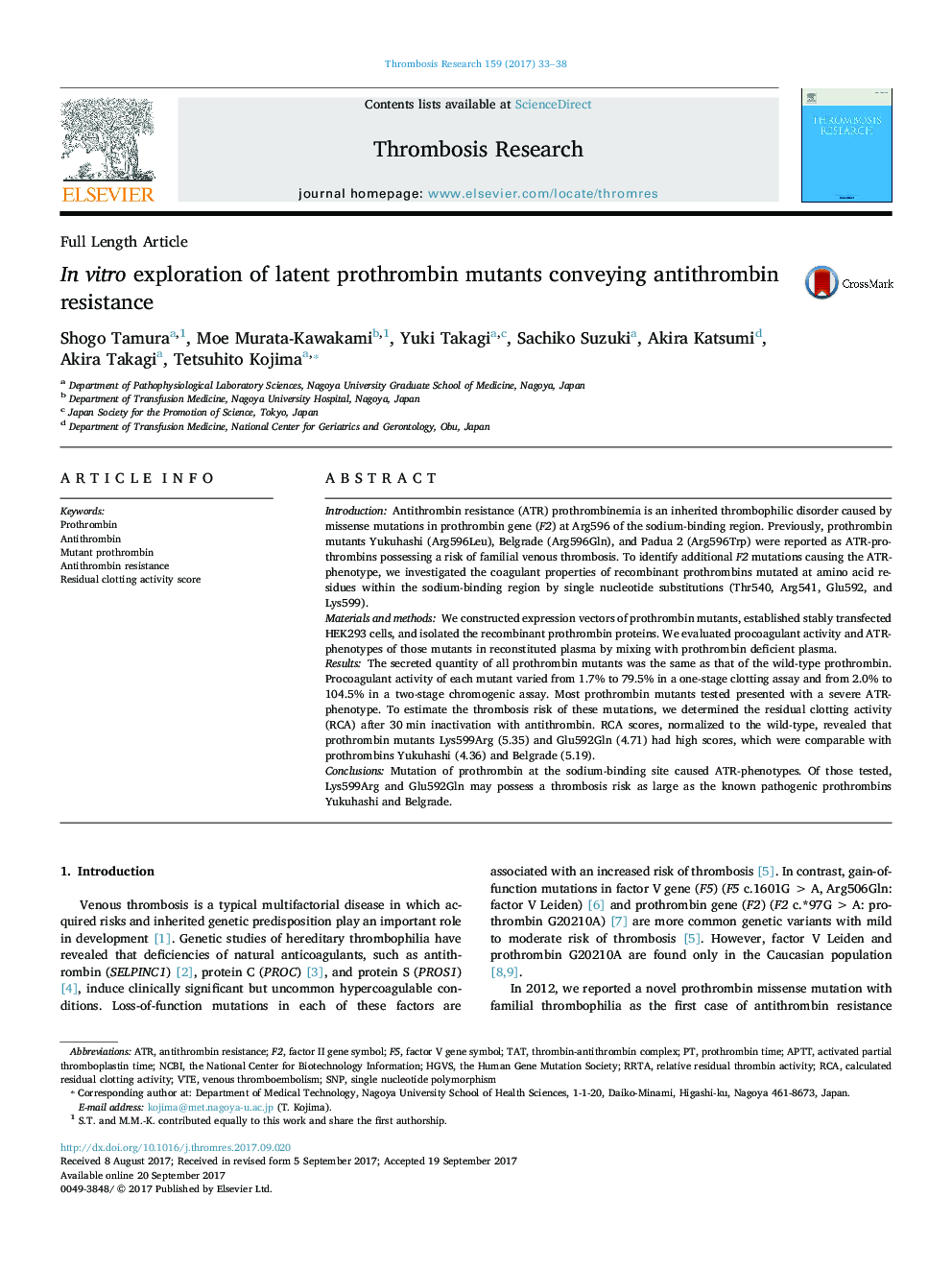| کد مقاله | کد نشریه | سال انتشار | مقاله انگلیسی | نسخه تمام متن |
|---|---|---|---|---|
| 5621771 | 1579184 | 2017 | 6 صفحه PDF | دانلود رایگان |

- Mutations of prothrombin at the sodium-binding domain in thrombin cause ATR phenotypes.
- RCA score is a useful index to estimate thrombosis risk of ATR-prothrombin mutants.
- Prothrombins Lys599Arg and Glu592Gln potentially increase the risk of thrombosis.
IntroductionAntithrombin resistance (ATR) prothrombinemia is an inherited thrombophilic disorder caused by missense mutations in prothrombin gene (F2) at Arg596 of the sodium-binding region. Previously, prothrombin mutants Yukuhashi (Arg596Leu), Belgrade (Arg596Gln), and Padua 2 (Arg596Trp) were reported as ATR-prothrombins possessing a risk of familial venous thrombosis. To identify additional F2 mutations causing the ATR-phenotype, we investigated the coagulant properties of recombinant prothrombins mutated at amino acid residues within the sodium-binding region by single nucleotide substitutions (Thr540, Arg541, Glu592, and Lys599).Materials and methodsWe constructed expression vectors of prothrombin mutants, established stably transfected HEK293 cells, and isolated the recombinant prothrombin proteins. We evaluated procoagulant activity and ATR-phenotypes of those mutants in reconstituted plasma by mixing with prothrombin deficient plasma.ResultsThe secreted quantity of all prothrombin mutants was the same as that of the wild-type prothrombin. Procoagulant activity of each mutant varied from 1.7% to 79.5% in a one-stage clotting assay and from 2.0% to 104.5% in a two-stage chromogenic assay. Most prothrombin mutants tested presented with a severe ATR-phenotype. To estimate the thrombosis risk of these mutations, we determined the residual clotting activity (RCA) after 30Â min inactivation with antithrombin. RCA scores, normalized to the wild-type, revealed that prothrombin mutants Lys599Arg (5.35) and Glu592Gln (4.71) had high scores, which were comparable with prothrombins Yukuhashi (4.36) and Belgrade (5.19).ConclusionsMutation of prothrombin at the sodium-binding site caused ATR-phenotypes. Of those tested, Lys599Arg and Glu592Gln may possess a thrombosis risk as large as the known pathogenic prothrombins Yukuhashi and Belgrade.
Journal: Thrombosis Research - Volume 159, November 2017, Pages 33-38